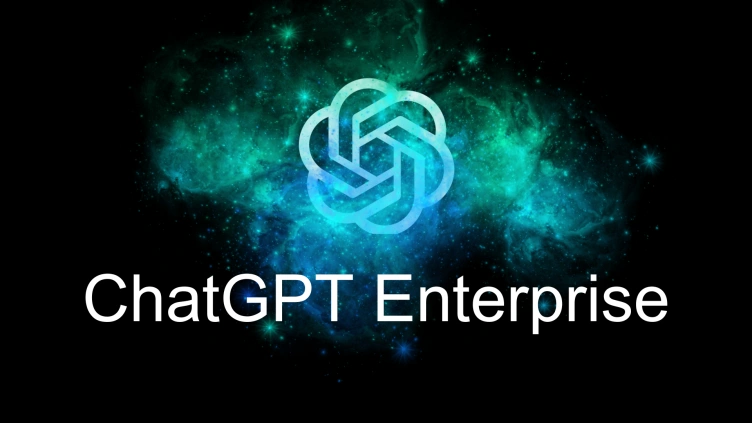Top 10 AI Tools for Businesses in 2025 – Ultimate Success

Introduction
As the global business landscape evolves, Artificial Intelligence (AI) continues to play a pivotal role in driving innovation and efficiency. By 2025, businesses leveraging AI tools will outpace their competitors in productivity, customer engagement, and operational optimization. These tools are not only helping companies streamline workflows but also empowering them with insights that were previously unimaginable.
In this article, we will dive deep into the top 10 AI tools for businesses in 2025, each of which stands out for its unique features and impact. Let’s explore how these tools can transform your business operations.
Why Businesses Need AI Tools in 2025
AI tools address some of the most pressing challenges faced by modern businesses, including scalability, customer personalization, and decision-making under uncertainty. Here are a few reasons why AI tools are indispensable in 2025:
- Automation of Repetitive Tasks: AI can take over mundane and time-consuming tasks, freeing up human resources for more creative and strategic roles.
- Data-Driven Insights: Businesses generate vast amounts of data daily, and AI can process this data to uncover trends and actionable insights.
- Enhanced Customer Interactions: With AI-driven personalization, businesses can engage customers with tailored offers, messages, and services.
- Scalability and Efficiency: AI tools are designed to scale operations without significantly increasing costs.
Whether you’re a startup or an enterprise, integrating the right AI tools can be a game-changer for your business.
Top 10 AI Tools for Businesses in 2025
1. OpenAI’s Business GPT

OpenAI’s Business GPT is a revolutionary AI tool tailored for enterprises. It blends natural language processing (NLP) with data analysis capabilities, making it an ideal choice for automating customer interactions and deriving insights from unstructured data.
- Features:
- Advanced NLP for human-like interactions.
- Real-time data analysis and reporting.
- Custom API integrations for seamless connectivity.
- Use Cases:
- Automating customer support through AI chatbots.
- Generating comprehensive business reports.
- Enhancing team communication with AI-driven solutions.
Why It Stands Out: OpenAI’s Business GPT is known for its adaptability across industries, whether it’s retail, finance, or healthcare.
2. Microsoft Copilot

Microsoft Copilot takes collaboration to the next level by integrating AI directly into Microsoft Office tools like Word, Excel, and Teams. It’s a must-have for businesses looking to boost team productivity.
- Features:
- Automated document generation and editing.
- Context-aware suggestions during team discussions.
- AI-driven task prioritization.
- Use Cases:
- Crafting proposals and presentations effortlessly.
- Managing projects and assigning tasks effectively.
- Generating insights from large datasets.
Why It Stands Out: Microsoft Copilot’s seamless integration with the Office ecosystem makes it an invaluable tool for businesses of all sizes.
3. ChatGPT Enterprise

Building on the success of ChatGPT, the Enterprise edition is designed specifically for businesses. It offers robust features for managing customer queries and streamlining internal communications.
- Features:
- Multi-language support for global businesses.
- Secure data handling to protect sensitive information.
- Real-time analytics for customer interactions.
- Use Cases:
- Powering AI-driven customer support systems.
- Enhancing team collaboration with AI-powered chatrooms.
- Centralizing knowledge bases for easy access.
Why It Stands Out: Its enterprise-grade security and scalability make it a top choice for businesses aiming to enhance both internal and external communication.
4. Jasper AI
Jasper AI continues to dominate the marketing world with its advanced content creation capabilities. It’s perfect for businesses looking to optimize their digital marketing efforts.
- Features:
- Generates SEO-friendly content and ad copies.
- Customizable tone and style for branding consistency.
- Integration with major marketing platforms.
- Use Cases:
- Creating blog posts, social media updates, and newsletters.
- Writing compelling ad copies to boost conversions.
- Optimizing content for search engines.
Why It Stands Out: Jasper’s ability to adapt to brand-specific guidelines makes it a marketer’s best friend.
5. UiPath AI
UiPath combines Robotic Process Automation (RPA) with AI, offering businesses a powerful tool to automate repetitive processes and improve efficiency.
- Features:
- Intelligent workflow automation.
- Predictive analytics for process improvement.
- Industry-specific automation solutions.
- Use Cases:
- Automating invoice processing in finance.
- Streamlining supply chain operations.
- Optimizing HR processes like recruitment and onboarding.
Why It Stands Out: UiPath’s focus on automation and efficiency makes it indispensable for enterprises dealing with high-volume tasks.
6. HubSpot AI
HubSpot’s AI tools offer a comprehensive solution for sales, marketing, and customer relationship management. It’s designed to help businesses maximize their growth potential.
- Features:
- AI-driven customer segmentation and lead scoring.
- Predictive analytics for marketing campaigns.
- Personalized email marketing tools.
- Use Cases:
- Enhancing customer retention with AI-powered insights.
- Running targeted marketing campaigns with precision.
- Tracking and optimizing sales pipelines.
Why It Stands Out: HubSpot AI empowers businesses to connect better with their customers, driving loyalty and sales.
7. Zoho Zia
Zoho Zia acts as a virtual assistant for businesses, helping with tasks ranging from data analysis to customer support. Its intuitive interface makes it accessible to non-technical users.
- Features:
- Smart data visualization and reporting.
- Real-time customer behavior analysis.
- Task automation and reminders.
- Use Cases:
- Generating sales reports with actionable insights.
- Assisting customer service teams with automated responses.
- Monitoring key performance indicators (KPIs).
Why It Stands Out: Zoho Zia’s integration with Zoho’s suite of products makes it a one-stop solution for businesses.
8. Adobe Sensei
Adobe Sensei leverages AI to enhance creative workflows, offering tools that simplify design, editing, and customer analytics.
- Features:
- AI-driven image and video editing.
- Predictive customer behavior analytics.
- Content recommendations for personalization.
- Use Cases:
- Automating repetitive design tasks for creative teams.
- Personalizing e-commerce platforms with AI insights.
- Optimizing marketing campaigns with data-driven recommendations.
Why It Stands Out: Adobe Sensei’s focus on creative and customer analytics makes it ideal for brands prioritizing design and user experience.
9. Salesforce Einstein

Salesforce Einstein integrates AI directly into its CRM platform, helping businesses analyze customer data and automate marketing efforts.
- Features:
- AI-driven lead scoring and opportunity insights.
- Automated workflow management.
- Predictive recommendations for customer engagement.
- Use Cases:
- Identifying high-value leads for sales teams.
- Automating follow-up processes.
- Creating personalized customer journeys.
Why It Stands Out: Salesforce Einstein is a game-changer for sales and customer relationship management.
10. IBM Watson

IBM Watson offers a versatile suite of AI solutions for industries like healthcare, finance, and retail. Its advanced machine learning capabilities make it a leader in AI innovation.
- Features:
- Natural language processing and speech recognition.
- Predictive modeling for business strategies.
- Industry-specific solutions for customization.
- Use Cases:
- Enhancing patient care in healthcare.
- Predicting market trends in finance.
- Improving customer experiences in retail.
Why It Stands Out: IBM Watson’s ability to adapt to diverse industry needs ensures its relevance across sectors.
Key Benefits of Using AI Tool
The adoption of AI tools offers tangible benefits, such as:
- Boosting productivity and efficiency.
- Providing actionable insights from complex data.
- Enhancing customer satisfaction through personalization.
- Reducing operational costs and errors.
How to Choose the Right AI Tool for Your Business
Selecting the right AI tool can seem daunting, but focusing on these factors can help:
- Identify Needs: Pinpoint the areas where AI can make the biggest impact.
- Evaluate Features: Look for tools with features that align with your goals.
- Check Compatibility: Ensure the AI tool integrates with your existing systems.
- Consider Scalability: Choose a solution that grows with your business.
Conclusion
AI tools are transforming businesses across industries, and the AI tools for businesses in 2025 listed here are at the forefront of this revolution. From streamlining workflows to enhancing customer engagement, these tools empower businesses to thrive in a competitive environment. Embrace AI today and unlock unprecedented opportunities for growth and innovation.
For comprehensive insights on money and finance, visit FintechZoom Money.
